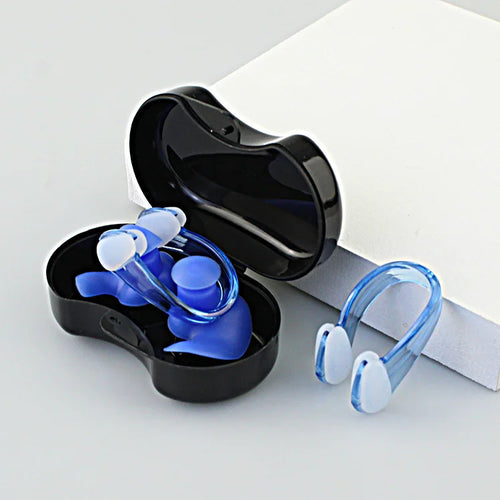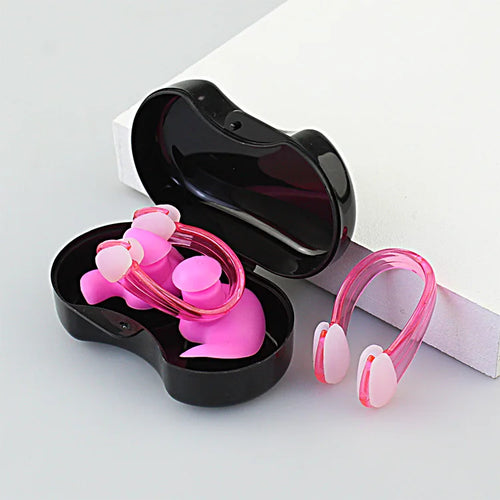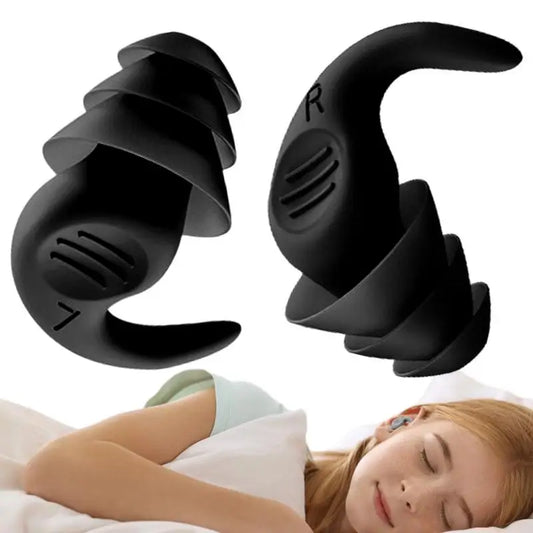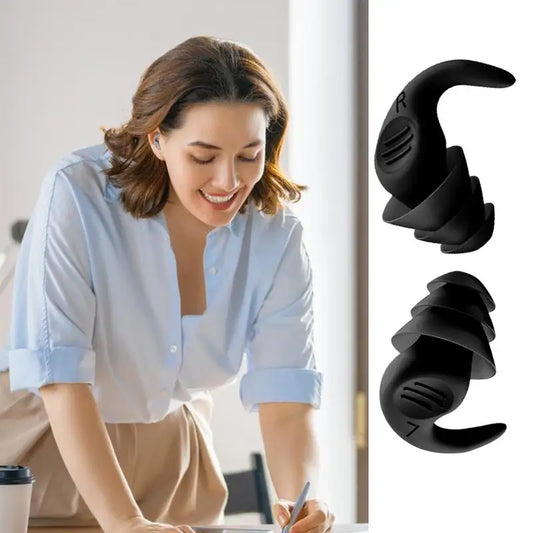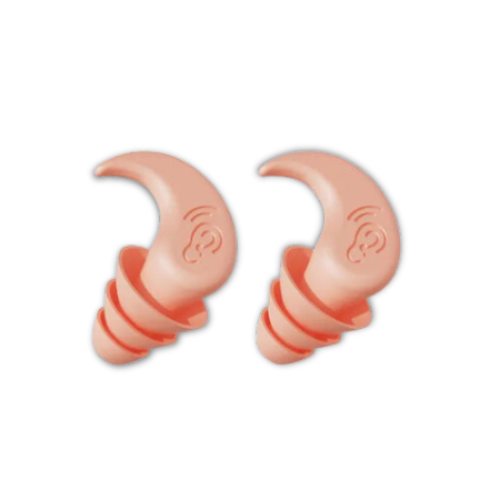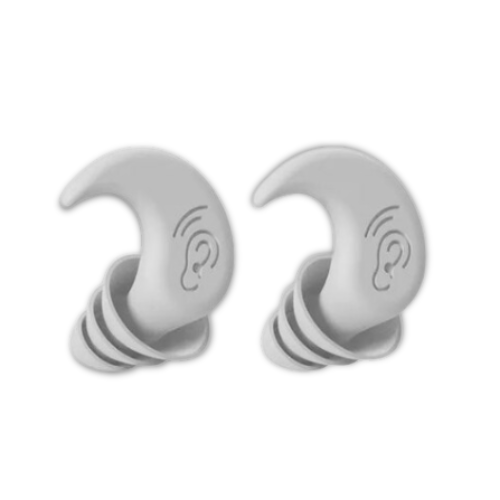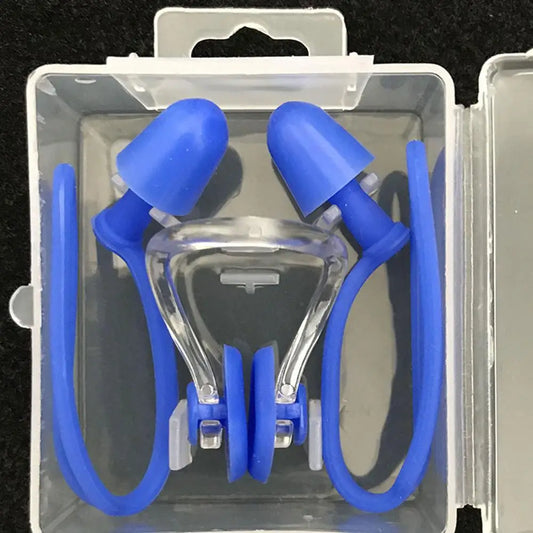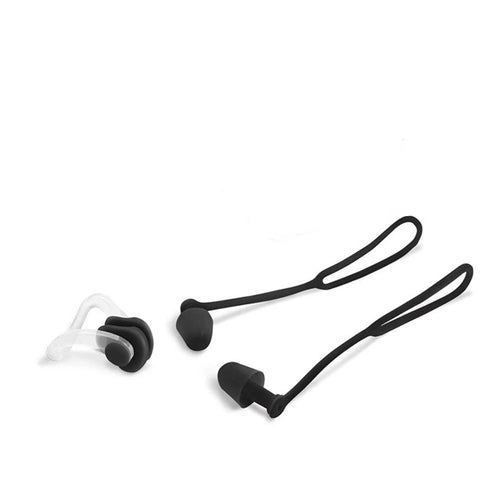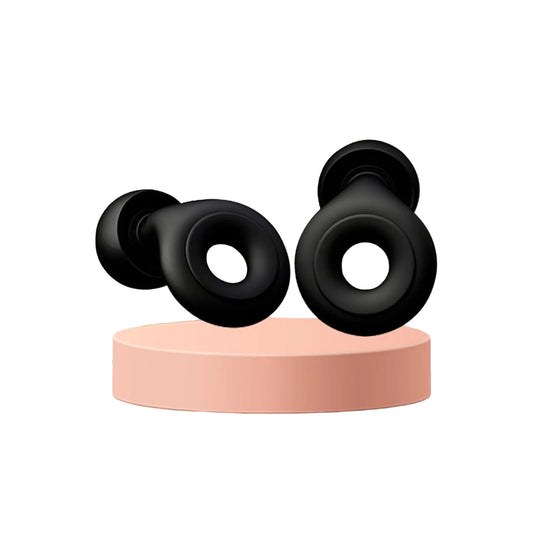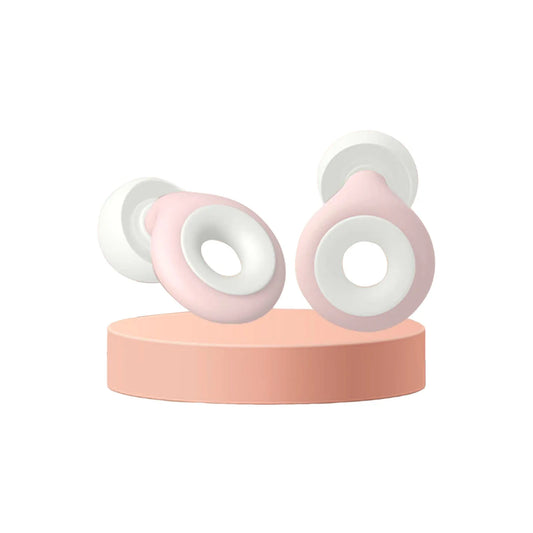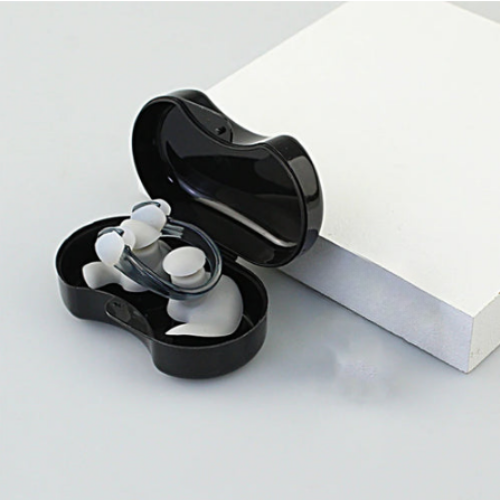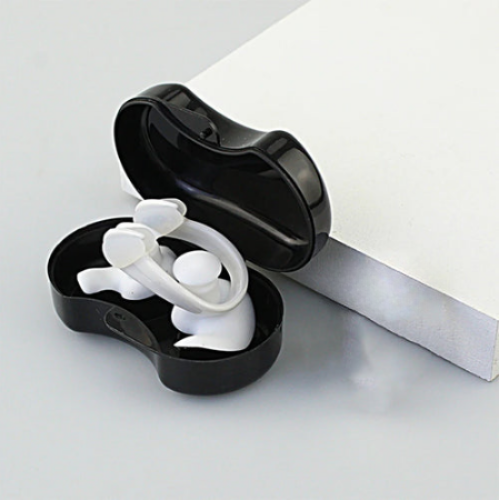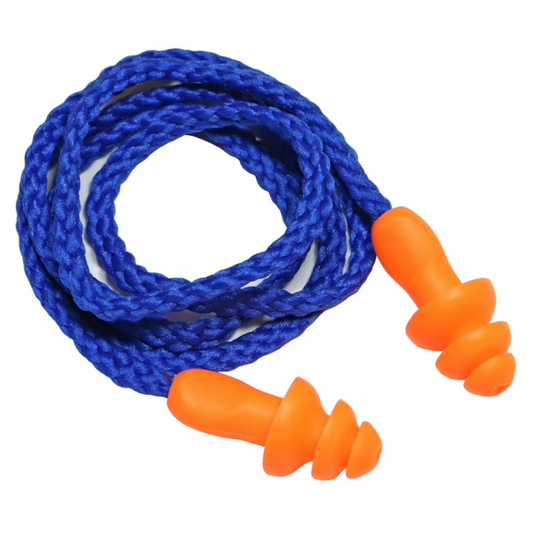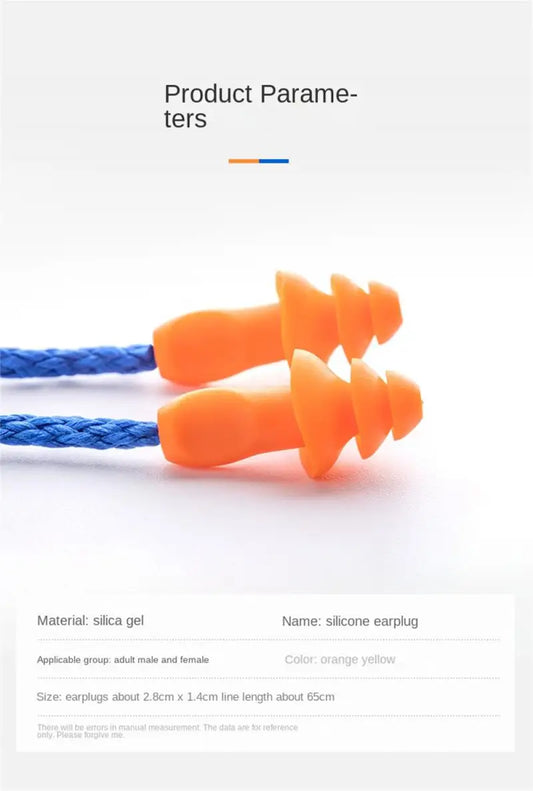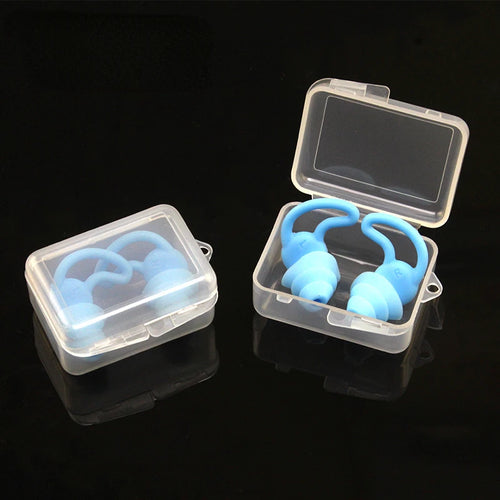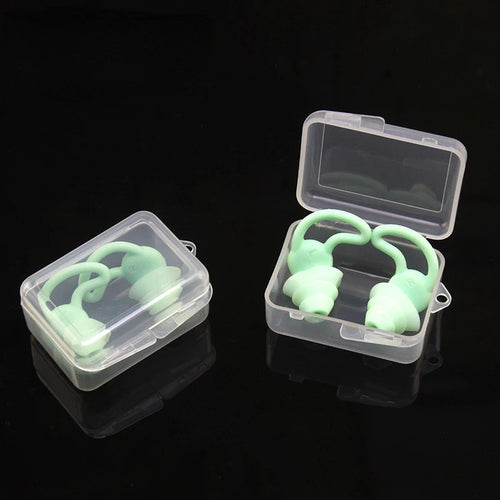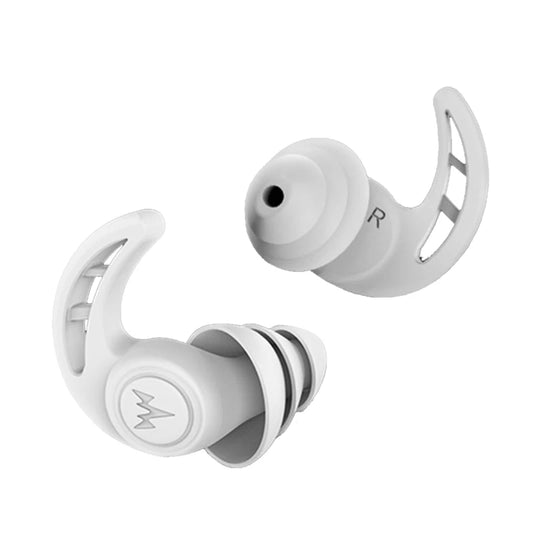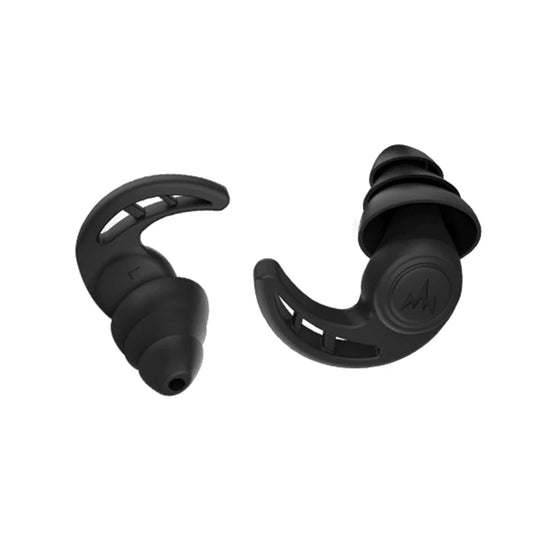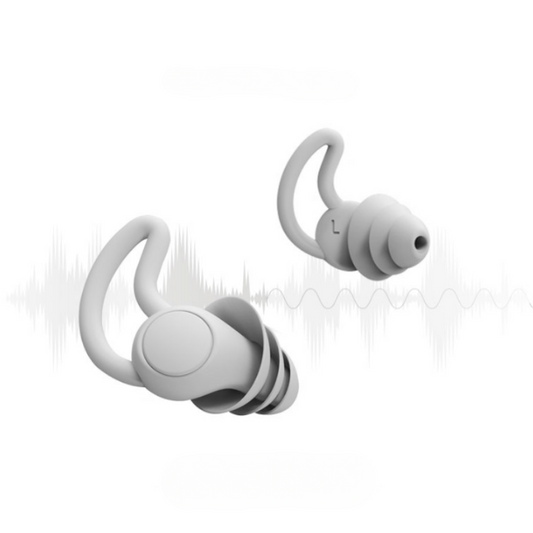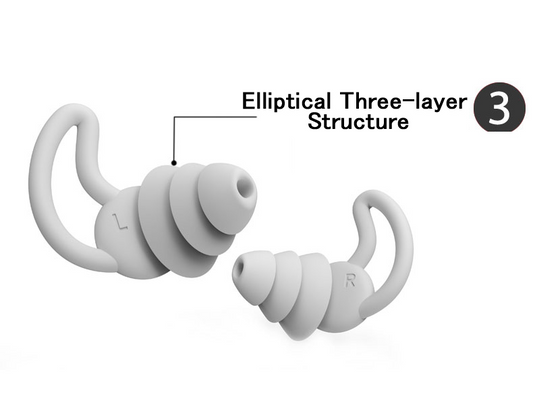-
Swimming Nose Clip Ear Plug Set
Regular price $18.90Regular priceUnit price / per -
Noise Cancelling Sleeping Earplugs
Regular price $23.58Regular priceUnit price / per -
Anti Noise Silicone Earplug
Regular price From $17.84Regular priceUnit price / per -
Waterproof Swimming Earplugs & Nose Clip
Regular price $19.40Regular priceUnit price / per -
Silicone Soundproof Earplugs
Regular price From $19.90Regular priceUnit price / per -
Summer Swimming Earplugs/Nose Clip Set
Regular price $15.90Regular priceUnit price / per -
1/5/10Pcs Soft Silicone Corded Earplugs
Regular price From $21.90Regular priceUnit price / per -
Silicone Corded Ear Plug
Regular price From $15.90Regular priceUnit price / per -
Three-Layer Design Portable White Noise Earplugs
Regular price $60.54Regular priceUnit price / per -
Reusable Waterproof Earplugs – Noise Out, Comfort In
Regular price $19.90Regular priceUnit price / per -
Etymotic Research Earplugs
Regular price From $12.00Regular priceUnit price / per
Collection: Earplugs
Silence is Golden: Discover the Best Earplugs for Sleeping and Noise-Free Nights
How Noise Cancelling Earplugs Can Transform Your Sleeping Experience
In an increasingly noisy world, achieving a peaceful night’s sleep can feel like an impossible task. However, earplugs for sleeping might just be the solution you need. Some earplugs allow users to still hear their alarm clock in the morning, ensuring they wake up on time. Especially, the noise cancelling earplugs have the potential to drastically transform your sleeping experience, promoting deeper and more restful sleep.
Understanding the Importance of a Good Night's Sleep
A restful sleep is a crucial component to our overall well-being. It enhances cognitive performance, sharpens memory, balances emotions, and even plays a significant role in our physical health. A lack of proper sleep can lead to an increase in irritability, difficulty focusing, and a decrease in productivity. Noise disturbances, such as those coming from busy streets, loud neighbors, or even a partner’s snoring, can significantly disrupt our sleep cycle and negatively impact our health. By undermining the quality of our sleep, these disturbances can, in turn, affect our daily functioning and quality of life. Therefore, combating these disturbances becomes imperative. This is where the role of ear plugs comes into play, offering an effective solution to noise-induced sleep disturbances.
How Noise Cancelling Earplugs Work for Noise Reduction
Noise cancelling earplugs leverage advanced technology to diminish undesired environmental noise. Some designs include a closed loop feature to alleviate pressure on the outer ear and improve overall fit. They do this by generating anti-noise signals, which effectively neutralize the disruptive sounds. These earplugs do not eradicate all sounds, but they can considerably lessen the intensity of background noise. This reduction can assist you in falling asleep quicker and maintaining uninterrupted slumber, even in places with high levels of ambient noise such as bustling cities or while you are traveling. By minimizing these disturbances, noise cancelling earplugs can greatly enhance your sleep quality, providing a solution to the age-old problem of trying to sleep in an environment that’s too noisy.
The Benefits of Using Earplugs for Restful Sleep
The primary advantage of earplugs for sleeping is the creation of a tranquil environment, enabling you to sleep undisturbed. Unlike traditional foam plugs, which can be uncomfortable and unreliable due to improper compression and visibility when worn, noise-cancelling earplugs offer superior comfort and effectiveness in blocking sound. Earplugs act as an effective barrier, silencing the noise of a bustling city, a snoring partner, or loud neighbors that can be disruptive to your sleep cycle. By effectively blocking these disturbances, earplugs allow you to drift off faster, reducing the chances of nighttime interruptions. This benefit leads to a profound improvement in your sleep quality. A restful night’s sleep contributes to heightened energy levels throughout the day, an uplifted mood, and enhanced cognitive performance. Consequently, using earplugs for sleeping can lead to an overall enhancement in the quality of your day-to-day life. Therefore, incorporating noise cancelling earplugs into your sleep routine can be a simple yet impactful change towards a healthier and more productive lifestyle.
Choosing the Right Earplugs for Your Ear Canal
Selecting the ideal pair of earplugs is crucial to achieving both comfort and efficacy during sleep. It’s important to consider several factors when making your choice. Firstly, the noise reduction rating (NRR) of the earplug is a key indicator of its ability to block out sound; the higher the NRR, the more noise cancellation provided.
Secondly, the material of the earplugs can greatly affect their comfort and durability. Foam earplugs, for instance, are a popular choice due to their comfortability and cost-effectiveness. However, custom-molded earplugs can offer an impeccable fit and superior noise reduction capabilities, albeit at a higher price point.
Fit is another important consideration, as poorly fitting earplugs can cause discomfort and may not provide effective noise cancellation. A pair of earplugs that fit snugly in your ear canal will offer the best results. Additionally, choosing earplugs with well-designed ear tips is essential for a secure and comfortable fit, especially for various ear sizes and side sleepers.
Lastly, think about your specific needs and lifestyle. Are you a frequent traveler needing to block out airplane noise, or do you live in a bustling city? Understanding your personal sleep environment and needs will guide you in choosing the right earplugs for your situation. Making an informed decision will ultimately enhance your sleep quality and overall well-being.
Types of Earplugs for Sleep
When it comes to choosing the right earplugs for sleep, there are several types to consider, each with its own set of benefits. Here are some of the most common types of earplugs for sleep:
- Disposable Foam Earplugs: Made from soft foam, these earplugs are designed for single use. They are inexpensive and easy to use, making them a popular choice for many. While they may not offer the highest level of noise reduction, they are effective for moderate noise levels and are perfect for occasional use.
- Reusable Silicone Earplugs: These earplugs are crafted from soft silicone and can be used multiple times. They are more comfortable than foam earplugs and provide better noise reduction. Their durability and reusability make them a cost-effective option for regular use.
- Custom-Made Earplugs: Tailored to fit the unique shape and size of your ear, custom-made earplugs offer the best noise reduction. They are often recommended for individuals who struggle with loud noises and need maximum noise reduction for a good night’s sleep. Although they come at a higher price point, their superior fit and effectiveness make them worth the investment.
- High Fidelity Earplugs: Designed to reduce noise levels while preserving sound quality, high fidelity earplugs are ideal for musicians, concert-goers, and anyone who wants to protect their hearing without sacrificing sound clarity. These earplugs are perfect for those who need to muffle sound without completely blocking it out.
Top Earplug Brands for Sleep
Choosing the right brand can make a significant difference in your sleep quality. Here are some of the top earplug brands known for their effectiveness and comfort:
- Loop Earplugs: Renowned for their comfort and efficiency, Loop earplugs offer a range of products specifically designed for sleep. The Loop Dream and Loop Quiet 2 are popular choices, providing excellent noise reduction and a comfortable fit for a restful sleep.
- Etymotic Research: A leader in the hearing protection industry, Etymotic Research offers the ER20 earplugs, which are designed to provide high fidelity sound while reducing noise levels. These earplugs are perfect for those who need to maintain sound quality while achieving effective noise reduction.
- Alpine: Alpine is a well-known brand for sleep earplugs, offering products like SleepSoft and SleepDeep. These earplugs are designed to provide comfort and effective noise reduction, making them a great choice for a peaceful night’s sleep.
- EARPEACE: Specializing in earplugs for sleep and hearing protection, EARPEACE offers a range of products tailored to different needs. Their earplugs are designed to be both comfortable and effective, ensuring a good night’s sleep in noisy environments.
Practical Tips for Using Noise Cancelling Earplugs
When you're ready to use your noise cancelling earplugs, start by checking that they're clean to prevent any potential ear infections. To correctly insert the earplug, gently tug your ear upwards and outwards, this will straighten the ear canal making it easier for the earplug to fit. Next, gently insert the earplug with a slight twist. This helps it settle comfortably into your ear. It's crucial that you hold the earplug in place momentarily, this allows it to expand and fill the ear canal, effectively blocking out the noise.
When it's time to remove your earplugs, do it gently. Give the earplug a soft twist as you pull it out. Yanking it directly could cause discomfort or even damage to your ear. Also, remember to store your earplugs in a clean and dry place when not in use to prevent any bacterial growth. Following these simple yet effective steps can ensure that you get the most out of your noise cancelling earplugs and aid in improving your sleep quality. Just remember, if any discomfort or issues arise during use, seeking advice from a healthcare provider is recommended.
Earplug Maintenance and Care
To ensure your earplugs provide effective noise reduction and last as long as possible, proper maintenance and care are essential. Here are some tips to keep your earplugs in top condition:
- Clean Your Earplugs Regularly: Use mild soap and water to clean your earplugs. Avoid harsh chemicals or abrasive materials that can damage them. Regular cleaning helps prevent ear infections and ensures the earplugs remain effective.
- Dry Your Earplugs: After cleaning, make sure to dry your earplugs thoroughly. Moisture can lead to bacterial growth, which can cause ear infections. Ensure they are completely dry before storing them.
- Store Your Earplugs Properly: Keep your earplugs in a cool, dry place away from direct sunlight. Avoid storing them in humid environments or exposing them to extreme temperatures, as this can degrade the material and reduce their effectiveness.
- Replace Your Earplugs Regularly: Depending on how often you use them, you may need to replace your earplugs regularly. Check the manufacturer’s recommendations for replacement to ensure they continue to provide optimal noise reduction.
Earplug Safety and Precautions
While earplugs are generally safe to use, it’s important to follow certain precautions to ensure their safe and effective use:
- Insert Earplugs Correctly: Proper insertion is key to avoiding discomfort or injury. Follow the manufacturer’s instructions for insertion to ensure a snug fit in the ear canal, which will provide the best noise reduction.
- Avoid Using Earplugs in Loud Environments: If you’re in a loud environment, such as a concert or construction site, use earplugs specifically designed for loud noises. Regular sleep earplugs may not provide adequate protection in these settings.
- Don’t Use Earplugs in Water: Avoid using earplugs in water, as they can become dislodged or damaged. Water can also compromise the earplugs’ ability to provide effective noise reduction.
- Consult a Doctor if You Have Ear Problems: If you have any ear problems or concerns, consult a doctor before using earplugs. They can recommend the best earplugs for your specific needs and ensure you use them safely.
By following these guidelines, you can enjoy the benefits of earplugs while minimizing any potential risks, ensuring a peaceful and noise-free night’s sleep.
The Potential Downsides of Using Earplugs for Sleeping
Even though noise cancelling earplugs come with many benefits, it's crucial to be cognizant of their potential downsides. Extended use of earplugs can contribute to a buildup of earwax over time, which can cause discomfort or even hearing problems if not properly managed. An additional concern with earplug usage is the risk of ear infections. This can occur if the earplugs are not cleaned properly or if they're kept in an unsanitary environment.
Another significant aspect to consider is the reduction of critical sounds. Using noise cancelling earplugs may diminish your ability to hear important alerts such as fire alarms, intruder alarms, or emergency notifications. For those who live alone or are responsible for others, this could pose a potential safety concern.
Lastly, some people might find the sensation of having earplugs in their ears uncomfortable or disorienting, especially initially. This could potentially lead to difficulty falling asleep, negating the benefits of the earplugs.
Therefore, while earplugs for sleeping can indeed transform your sleeping experience, they are not without their potential drawbacks. It's important to be aware of these concerns and take appropriate steps to mitigate any potential risks. If any discomfort or complications arise with their usage, it is recommended to promptly seek medical advice.
Alternatives to Noise Cancelling Earplugs
While noise cancelling earplugs can work wonders for many, they may not be the perfect solution for everyone. Don't worry, there are other viable alternatives to help you attain a serene sleep environment. One of these is the use of white noise machines. These devices emit a consistent, soothing sound that effectively drowns out other disturbing noises in your surroundings, allowing you to sleep peacefully.
If you're open to a larger project, consider soundproofing your room. This might involve installing insulation in your walls or adding thick curtains to your windows to block out outside noise. While it requires a bit of investment, the results can be worthwhile, particularly if you live in a noisy area.
Alternatively, noise-cancelling headphones can also be an effective solution. Though generally more costly than earplugs, they offer a broader range of features, including adjustable noise cancellation levels and even the ability to play calming music or sounds to further promote relaxation.
In the end, it's about finding the best solution that fits your needs, comfort preferences, and lifestyle to ensure you can get a good night's sleep. Whatever method you choose, the goal remains the same: creating a quiet and peaceful sleep environment.

